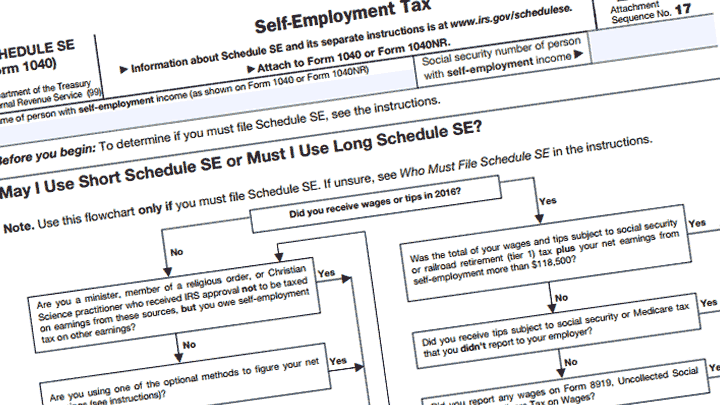The IRS Office of the Chief Counsel recently rejected a creative yet flawed attempt to end-run an LLC's member's obligation to pay self-employment tax on his distributive share of LLC income. As detailed in Chief Counsel Advice 201640014, the taxpayer argued that substance-over-form rules similar to those applicable to S-corporations should apply to LLC members in capital intensive businesses when: (a) the LLC derives income from the sale of products, (b) the LLC member has made substantial capital investment, and (c) the LLC member has delegated significant management responsibilities to executive-level employees.
Applying that analysis, the taxpayer claimed that only his guaranteed payments (which he said were reasonable compensation) were subject to self-employment tax. The taxpayer argued that his distributive share of partnership income constituted a return on invested capital. The taxpayer was essentially arguing that the self-employment tax rules for capital intensive businesses carried on by LLC partnerships should be identical to the self-employment tax rules for corporate shareholder employees. IRS found that this argument ignored the separate statutory rules for partners in a partnership and, in particular, the proposed but never finalized self-employment tax regulations intended to apply to LLC members.
The IRS concluded that Code Sec. 1402(a)(13) provides an exclusion for limited partners, not for a return on invested capital, and does not turn on the presence of a guaranteed payment or the capital-intensive nature of the partnership's business. The IRS determined that the partnership could not change the character of the taxpayer's distributive share by paying guaranteed payments. In support of its determination, the IRS considered the 1997 Proposed Regulations (which have never been finalized) intended to apply to this exact situation. The taxpayer did not structure his membership interest or involvement in the LLC in accordance with the 1997 Proposed Regulations and failed to differentiate his situation from the intended scope of the 1997 Proposed Regulations. The IRS' unofficial position is that it will not challenge the characterization of a partner's distributive share if the partnership's capital structure complies with the 1997 Proposed Regulation.
Until the Department of Treasury issues final regulations governing self-employment taxes on members of LLCs, the facts and circumstances of each client situation will need to be considered independently to determine if self-employment taxes apply. The tax attorneys at McLaughlinQuinn regularly work with clients to minimize self-employment taxes and structure LLCs in accordance with current IRS guidance and applicable law.

